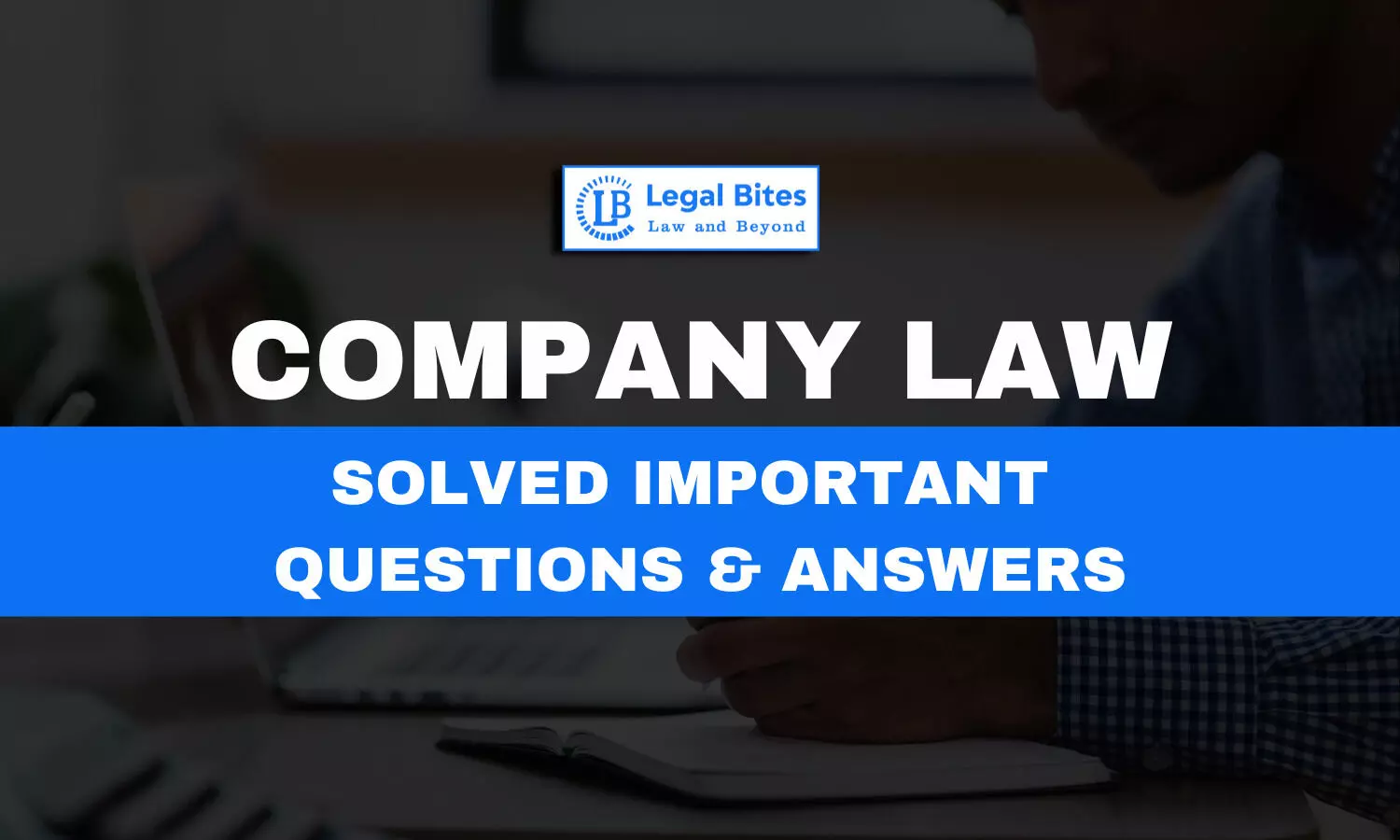C, the promoter of a Company, entered into a contract with D to buy a plot of land for the company. After incorporation, the company refused to buy the land. Advice D about his rights against C and the Company.
Find the question and answer of Company Law only on Legal Bites.;

Question: C, the promoter of a Company, entered into a contract with D to buy a plot of land for the company. After incorporation, the company refused to buy the land. Advice D about his rights against C and the Company. [BJS 1984]Find the question and answer of Company Law only on Legal Bites. [C, the promoter of a Company, entered into a contract with D to buy a plot of land for the company. After incorporation, the company refused to buy the land. Advice D about his rights against C and...
Question: C, the promoter of a Company, entered into a contract with D to buy a plot of land for the company. After incorporation, the company refused to buy the land. Advice D about his rights against C and the Company. [BJS 1984]
Find the question and answer of Company Law only on Legal Bites. [C, the promoter of a Company, entered into a contract with D to buy a plot of land for the company. After incorporation, the company refused to buy the land. Advice D about his rights against C and the Company.]
Answer
If D entered into a contract with C to sell a plot of land to the company and the company subsequently refuses to buy the land. The company will not be liable. The general rule is "no contract can bind a company before it becomes capable of entering into a contract by incorporation". This rule is based on the fact that until a company is incorporated, it does not have a legal existence, and therefore, it cannot enter into any legal obligations. In such a scenario Promoters of a company are personally liable for any pre-incorporation contracts they make on behalf of the company. Herein C will be liable to compensate D.
In general, if the contract is valid and enforceable, D can take legal action to enforce the contract and seek damages from C and/or the company for any losses suffered as a result of the company's refusal to buy the land. D may also be able to seek specific performance of the contract, which would require the company to purchase the land as outlined in the contract.
If the contract has a clause that binds the company as well, D can take legal action against the company for breach of contract.
If C has guaranteed the contract, D can seek the performance of the contract from C, as C is personally liable for the company's failure to perform the contract.
If the contract was entered into before the incorporation of the company, D may have a claim against C for misrepresentation or fraud, as C may have represented that the company would purchase the land, when in fact it did not intend to do so.
It is important for D to review the terms of the contract, any guarantees or representations made by C, and the laws of the jurisdiction to determine the appropriate course of action. It is advisable for D to take legal advice from an attorney to understand the specific rights and remedies available to him.





